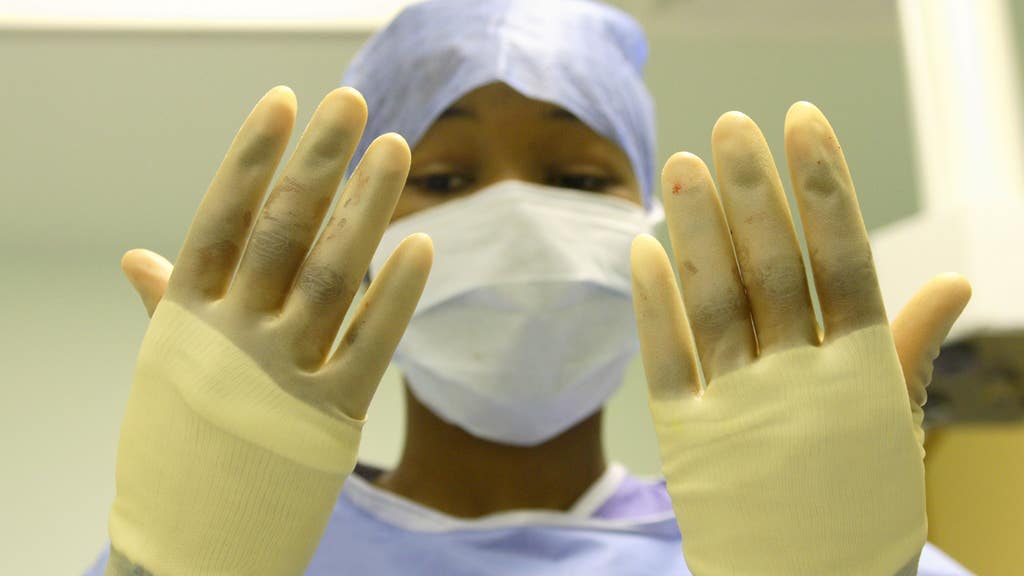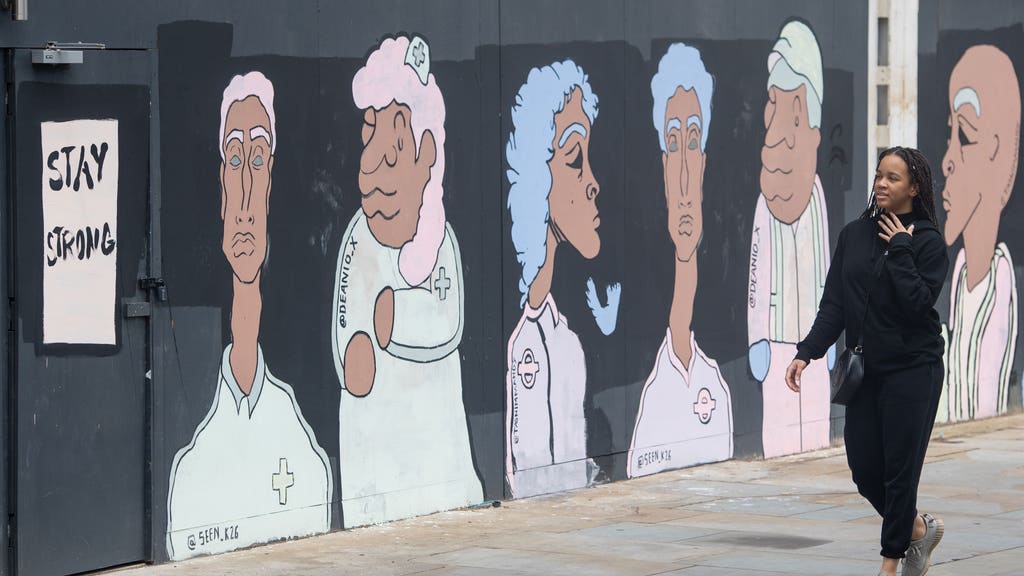White ‘old boys’ network holding ethnic minority surgeons back from job promotions, researchers say
‘Deep-rooted disadvantages’ for ethnic minorities and women in healthcare sector, experts say

Your support helps us to tell the story
From reproductive rights to climate change to Big Tech, The Independent is on the ground when the story is developing. Whether it's investigating the financials of Elon Musk's pro-Trump PAC or producing our latest documentary, 'The A Word', which shines a light on the American women fighting for reproductive rights, we know how important it is to parse out the facts from the messaging.
At such a critical moment in US history, we need reporters on the ground. Your donation allows us to keep sending journalists to speak to both sides of the story.
The Independent is trusted by Americans across the entire political spectrum. And unlike many other quality news outlets, we choose not to lock Americans out of our reporting and analysis with paywalls. We believe quality journalism should be available to everyone, paid for by those who can afford it.
Your support makes all the difference.Ethnic minority surgeons are being blocked from job promotions due to an elite “old-boys’ network” within the profession, according to researchers.
Analysis of more than 3,000 junior surgeons in NHS England over the past decade revealed that Black women junior surgeons were 42 percentage points less likely to be promoted than white men, while women of Indian and Pakistani ethnicity were 28 percentage points less likely to be promoted.
The research, presented at the British Academy of Management online annual conference, led medical professionals to urge government ministers to ramp up its efforts to tackle racism in the sector.
It also highlighted a gender divide, with white women 21 percentage points less likely than white male counterparts to be promoted. Women of Chinese and south-east Asian ethnicity were 14 percentage points behind.
Black men were 27 percentage points behind white men, with Indian and Pakistani men 10 percentage points behind, and men of Chinese and south-east Asian ethnicity six percentage points behind.
Ethnic minority women accounted for 15 per cent of surgeons in 2020, but just 8 per cent of trainees who were promoted to consultant were from this group, the research found.
One of the researchers, Professor Carol Woodhams of the University of Surrey, said: “This is objective evidence that disadvantage against diverse groups in surgery is deep-rooted and a new progressive milieu in the NHS and the broader society has not yet translated into concrete and progressive outcomes.
“Women and ethnic minority junior surgeons may have less access to important informal networks that bestow the sponsorship and patronage that is so important in securing a consultant post.”
She said even with the same number of training hours and the same record of career interruptions, women and black men were less likely to be promoted to consultant.

Commenting on the research, Mr Tim Mitchell, the vice-president of the Royal Society of Surgeons, told The Independent: “The findings of this research are deeply concerning - women and ethnic minorities must be fully represented throughout the ranks of the surgical profession.
“As leaders of the surgical profession, we have an essential role to play in fostering a diverse surgical community where anyone who has the talent and determination, can thrive. However, we cannot do this alone - we need to work with the NHS, government, and the surgical community to overcome these barriers.”
Mr Mitchell, a consultant ear, nose and throat surgeon, added: “At the Royal College of Surgeons of England, we recognise that more needs to be done to ensure that all can reach the top of the profession, regardless of their background, gender or race. We are taking action to address inequalities and have committed to the findings from an independent review by Baroness Helena Kennedy QC. The action plan for this will be published in September.
“We want to lead by example and to champion equality and diversity. Our Women in Surgery Network initiative is an important step in making this a reality, as it helps to connect over 6,000 women from all career grades and specialties across the UK to collaborate, network and support each other in their careers.
A recent report from the Royal College of Surgeons of England, dated March 2021, recognised the lack of diversity in surgery and cited micro-aggressions, the operation of an ‘old boys’ network’, discrimination and a lack of opportunities to be mentored as part of the problem.
British Medical Association council chair Dr Chaand Nagpaul told The Independent: “This research provides further evidence of the significant inequalities in career progression affecting some women and some ethnic minority doctors in the NHS.
“The data also highlights that some women doctors face intersectional discrimination based on both their gender and ethnic background. Not only is this unacceptable, but it also prevents the health service from benefiting from the true potential contribution of its medical workforce.
“It is high time the government starts acting on the irrefutable evidence that some groups of doctors are disadvantaged purely on the basis of their gender or ethnicity. Women make up approximately 48 per cent and ethnic minorities approximately 35 per cent of doctors, with many having faced additional hurdles and challenges as they serve in our health service. They deserve to be treated and rewarded fairly on an equal footing to their peers.”

The Race & Health Justice (RHJ) Group of Medact, a UK global health charity, said the findings of the research came as no surprise
“One of the most important reasons why policy-makers must take note of these findings is the undeniable impact of clinicians’ attitudes on their patients. When surgeons are subjecting their Black female surgeon colleagues to “microaggressions, mistreatment and harassment” then what kind of treatment are they giving to their black female patients?,” they said.
“We are not surprised by these findings; our group members have frequently experienced racism and sexism in our own NHS work and we hear further reports of discrimination from colleagues and through our campaign work, with a significant impact on wellbeing.
“A welcome strength of this paper is its acknowledgment of the complex link and intersection of gender and ethnicity/race. Most notably, the finding that male density in surgical subspecialties negatively impacts career progression of both ethnic minorities and women necessitates an urgent culture change through an intentional re-shuffling of the NHS leadership.”
The research, by the University of Surrey Business School, Queen Mary University, and Exoduspoint Capital LLC, analysed data on 3,402 NHS junior surgeons in England from 2009-2010, studying how many had progressed to consultant level by 2020.
An NHS spokesperson said: "While more than four fifths of NHS staff feel their organisation acts fairly with career progression and the number of women and people from black and minority ethnic backgrounds in senior surgical roles is increasing, there is more work to do, which is why the NHS is providing intensive support to local areas to increase the number of people from these groups working in senior roles."
Join our commenting forum
Join thought-provoking conversations, follow other Independent readers and see their replies
Comments